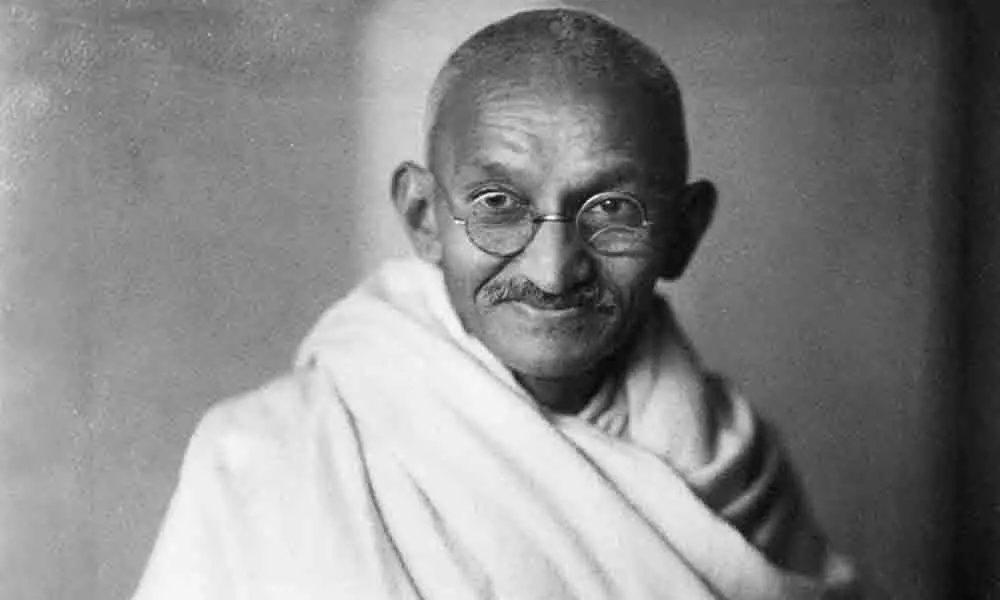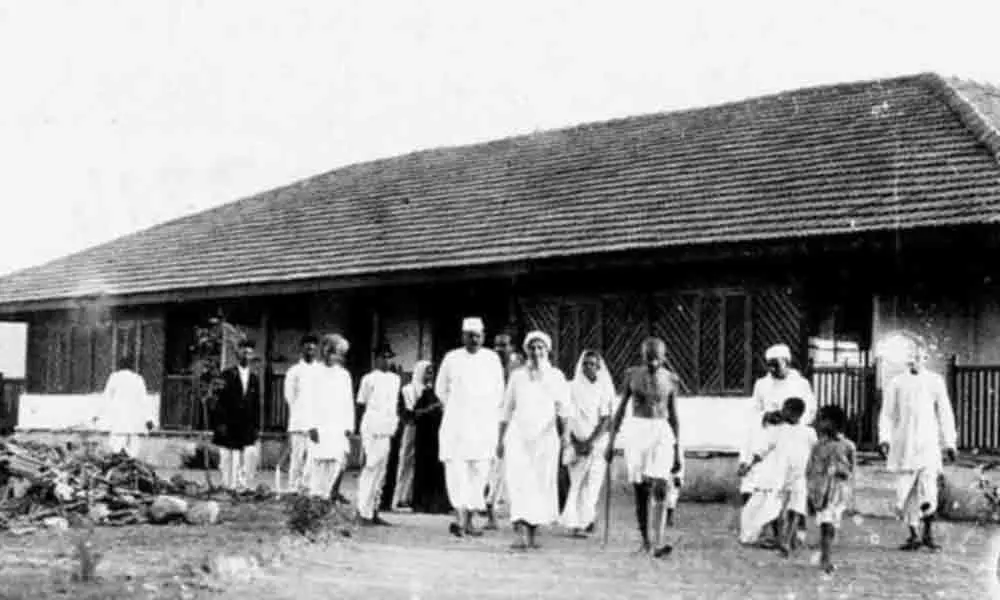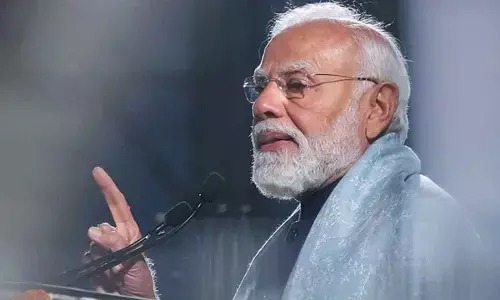The apostle of peace: Mahatma Gandhi
Venerated, vilified, admired and contradicted Gandhi continues to fascinate, confound, impact and inspire the world in awe of him 150 years later
Strength does not come from physical capacity. It comes from an indomitable will… - Mahatma Gandhi
There are many valuable quotes by the Mahatma, but this best explains the one quality at the root of all other facets of the architect of our freedom, the inspiration for world leaders and one whose statues have found eternal homes even in far-flung regions of the world. The frail figure with his famous glasses, walking stick and loincloth described as the 'half-naked fakir' by Winston Churchill remains an icon not just in the country of his birth but in the hearts of millions of people across the world as an apostle of peace and non-violence and an incredibly compassionate soul whose life was his message. Among the hundreds of thousands who sacrificed their lives for liberation from bondage, what is it that had the world revere one individual as the 'Mahatma' or great soul?
Retaliation is easy, restraint is difficult. Blaming others is easy taking the blame for others fault is difficult. Falsity is easy but adhering to the truth under all circumstances is extremely difficult. Mohandas Karamchand Gandhi, who transformed into the 'Mahatma' through the vicissitudes and opportunities provided by the demands of the time remains the most deified leader in modern history influencing the course of not just one nation but spelling out a doctrine of peace and non-violence quite unheard of before him. Venerated, vilified, admired and contradicted Gandhi continues to fascinate, confound, impact and inspire the world in awe of him 150 years later. The boy from Porbandar, who came to be called a prophet, saint, philosopher and reformer leaves behind a legacy of love and compassion quite unparalleled in the annals of the world. Nehru in his historic 'Tryst with destiny' speech articulated the thoughts of the nation under the spell of a person, who laid the foundations of freedom through peace, love and perseverance in the following words: ''On this day our thoughts go to the architect of this freedom, the father of our nation, who embodied the old spirit of India held aloft the torch of freedom and lighted up the darkness that surrounded us".
Gandhi's steely resolve and unwavering stance disturbed many of his followers throwing them out of their comfort zone, but they always yielded because of his intense love for mankind, which transcended narrow barriers of religion, class, caste or nationality. Kuldip Nayar in his book 'On Leaders and Icons' recalls an incident where the Mahatma disturbed by the communal frenzy in Calcutta asked people to surrender their arms within 24 hours. All types of weapons from a long spear to an air rifle were then given up. A bitter Hindu Punjabi came up to the Mahatma and threw a long knife at his feet stating that his only son aged 12 was killed by some Muslims. The Mahatma was sorry to hear this tragic story and advised him to pick up a 12-year-old Muslim orphan from the crowd and bring him up in the best tradition of Islam, so as to shame the bigoted. Gandhi's incredible theme of unity and non-violence has come to be accepted by the world as the only way to live in harmony through embracing differences.
Visiting the Sabarmati Ashram that he founded in 1915 on the banks of the Sabarmati River in Ahmedabad recently I was awestruck by the beauty, simplicity and serenity of a place that truly deserves to be called an Ashram and wherein he lived for a total of 12 years along with his wife Kasturba Gandhi and followers. It was from here that he led the historic Dandi March or Salt Satyagraha and this national monument has beautifully arranged quotations, pictures and vignettes from the Mahatma's live preserved for posterity.
A library with a huge collection of books and a small room selling khadi kurtas, sarees, bags and handicrafts are part of the Ashram complex that has a cluster of cottages. 'Hridaya Kunj', the small cottage, where Gandhi lived with simple rooms, a courtyard and a spinning wheel at the entrance gives us glimpses of his Spartan lifestyle. The greenery around the placid river waters, volunteers demonstrating the use of the spinning wheel and children singing bhajans in the evening at the designated prayer space under the trees all make it an ethereal experience where one feels his presence pervading the atmosphere.
The participation of world leaders at an event commemorating 150 years of Mahatma Gandhi at the United Nations General Assembly headquarters in New York and the gesture of planting 150 trees and issuing a commemorative stamp only reflects the love and respect that Gandhi commands among the nations of the world. This becomes evident from Prime Minister Narendra Modi's words at an event on the topic 'Leadership Matters: Relevance of Gandhi in Temporary Times'. "Gandhiji was an Indian, but he did not belong just to India.
Whether it was Martin Luther King Jr or Nelson Mandela, their beliefs were somewhat influenced by Mahatma Gandhi's vision," he elaborated stating that Gandhiji's principles are a guide to humanity and relevant to all times. The Mahatma's many writings and a whole body of literature, film and theatre have inspired generations of people who celebrate his life. Albert Einstein's glowing tribute to the Mahatma best encapsulates this. "Generations to come will scarce believe that such a one as this ever in flesh and blood walked upon this earth."
Mahatma Gandhi's own words from his much-acclaimed book 'My Experiments With Truth' are worth pondering as we step into an increasingly divisive world. "To see the universal and all-pervading spirit of truth face to face one must be able to love the meanest of creation as oneself," Gandhi had said. Making an effort in this direction will be our greatest tribute to the Mahatma.










